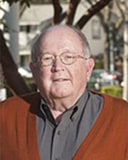About Verndari
An early-stage biotechnology company, Verndari was founded with the goal of transforming vaccine delivery through next-generation science and technology.
Our Mission
Verndari, Inc. is a biotechnology company dedicated to developing and commercializing a novel intradermal vaccine delivery device to prevent serious infectious diseases.
Verndari was founded with the goal of transforming vaccine delivery through next-generation science and technology. At Verndari, we seek to improve global health through more effective delivery of vaccines, at a lower cost, to populations around the world. We aim to establish VaxiPatch™ as a proven, lifesaving solution to prevent known and emerging infectious diseases.
Verndari’s unique VaxiPatch™, a single-dose vaccination kit using intradermal microarray technology, offers potential advantages that include dose sparing, improved efficacy, and pain-free delivery – while making vaccine administration much simpler.
The technology eliminates the need for cold chain shipping and storage and facilitates high-volume automated manufacturing of vaccines.
Our Team
We have assembled an experienced team committed to transforming global health. Together, we are dedicated to building a brighter future through more effective delivery of life saving vaccines. Our team values scientific discovery, diversity, and integrity.

Amy Van Prooyen

Amy Van Prooyen
Chief Executive Officer
Amy Van Prooyen, Esq. is chief executive officer of Verndari, Inc. She joined Verndari in 2020, and previously served as the company’s Chief Legal Officer, working to protect Verndari’s proprietary vaccine science and technology.
For more than a decade, Ms. Van Prooyen served as the founder and managing partner of Van Prooyen Greenfield LLP, a law firm with offices in New York and San Francisco. She provided strategic counsel to mitigate and manage a range of corporate issues, and protected business objectives for leading organizations. Prior to founding Van Prooyen Greenfield LLP, Ms. Van Prooyen was a vice president in the Crisis and Reputation Risk practice at Edelman in New York City.
Ms. Van Prooyen previously served as adjunct faculty and was named the Sorenson Distinguished Lecturer at the University of Utah College of Humanities. She is currently a member of the Board of Counselors at the University of San Francisco School of Law, the Partnership Board at the University of Utah College of Humanities and Live Like Sam Foundation.
Ms. Van Prooyen received a B.A. and an M.A, summa cum laude, from the University of Utah, where she received the Distinguished Alumna Award in 2009. She received J.D. from the University of San Francisco School of Law.

John H. Brown

John H. Brown
President and Chief Operating Officer
Member, Board of Directors
John H. Brown, a co-founder of Verndari, has served as president and a member of the company’s Board of Directors since 2015. He brings three decades of leadership in biopharmaceutical operations and executive management to Verndari.
Mr. Brown previously served as president, Europe, Middle East, and Africa region, for Bausch & Lomb, a company at the forefront of visionary innovations in eye health care. He oversaw the company’s surgical, pharma and vision care sectors, representing more than $2.5 billion in annual sales.
From 2002 to 2007, Mr. Brown was chief executive officer of Integrated Biosystems, Inc., a manufacturer of production equipment for biopharmaceutical customers including Genentech and Amgen. The company, based in Napa, California, was sold to Stedim, SA in 2004. Mr. Brown served as CEO of Covance Biotechnology Services, Inc. (CBSI), a company based in Research Triangle Park, North Carolina, and leading in the development and manufacturing of innovative biopharmaceutical substances. CBSI, a subsidiary of Covance, Inc., was later sold to Azko Nobel. He was co-head of Hamblet & Hayes Co., from 1971 to 1980, which was purchased by CIBA-Geigy. At CIBA-Geigy (later merged with Sandoz to become Novartis AG), Mr. Brown held various senior management roles, including senior vice president of Pharma, head of worldwide sales and marketing for Specialty Chemicals, and member of the Divisional World Managing Committee.
Mr. Brown received a B.S.E. with high honors from Princeton University and received a M.B.A. in Finance from Harvard Business School

Jan A. Van Prooyen, Ph.D.
Independent Chairman, Board of Directors

Jan A. Van Prooyen, Ph.D.
(Major General, U.S. Army, ret.)
Independent Chairman, Board of Directors
Jan A. Van Prooyen is a co-founder and Independent Chairman of the Board of Directors of Verndari, Inc.
Dr. Van Prooyen retired as a U.S. Army Major General. His expertise includes project management, chemical and biological defense, and nuclear technology. His military career included field duty in Viet Nam and Germany and leadership assignments focused on the acquisition of Army weapons systems, major missile defense programs, and chemical and biological research programs. He led a major research and development center (Edgewood Research, Development and Engineering Center now called JPEO, NBCRND), and two national test ranges. He was awarded the Distinguished Service Medal in 1996 for exceptionally meritorious and distinguished service to the Government of the United States.
After his 30-year career in the U.S. Army, Dr. Van Prooyen joined the Bechtel Corporation and became senior vice president and partner. From 2003 to 2006 he led Bechtel’s 5,000-person Defense and Space business as president. From 2006 to 2009 he served as deputy laboratory director of the Los Alamos National Laboratory where he was responsible for oversight and integration of the daily operations of the laboratory with focus on safety, security, business services, environmental management, and infrastructure.
Dr. Van Prooyen has served as a board member of multiple companies including Bechtel National, Inc., Bechtel Bettis, Inc., and the Armed Services YMCA. He served as board chairman of the Universities Space Research Association and Kwajalein Range Services, a joint venture of Lockheed Martin and Bechtel.
Dr. Van Prooyen graduated with a B.S. from the United States Military Academy at West Point in 1966 and received his Ph.D. in Nuclear Engineering from the University of Virginia. He later completed a one-year fellowship at the John F. Kennedy School of Government at Harvard University

Paul Sartori, Ph.D.

Paul Sartori, Ph.D.
Chief Strategy Officer
Member, Board of Directors
Paul Sartori, Ph.D. joined Verndari, Inc. in 2020 as Chief Strategy Officer, and was appointed to the Board of Verndari, Inc. in 2022. He has more than 35 years of experience leading organizational change, marketing, communications, and public and government affairs in the pharmaceutical and healthcare field.
Mr. Sartori has served as a senior executive and corporate officer in a variety of challenging global roles for large corporations. Starting his career at Corning, he served as the chief human resources officer for CIBA Corning Diagnostics, a global joint venture between Corning and CIBA-Geigy of Switzerland, then senior vice president and later executive vice president of CIBA prior to the merger of CIBA and Sandoz forming Novartis. At Novartis, he was named executive vice president, Human Resources and Public Affairs, and served in Basel, Switzerland on the global integration teams. Mr. Sartori also served as an officer and global head of Human Resources at Covance and Bausch & Lomb.
Mr. Sartori has deep experience with startup companies and was recently the vice president of Organization and Strategy for Cavion LLC, a clinical stage pharmaceutical company based in Charlottesville, Virginia developing therapies for the treatment of chronic and rare neurological diseases. Cavion was acquired by Jazz Pharmaceuticals Plc in 2019. He was formerly a vice president at Integrated Biosystems, Focus Technologies and BioTrove. He has served as an Entrepreneur-in-Residence for CvilleBioHub and is an advisor to the CEOs and Boards of HemoShear Therapeutics and ZielBio, as well as serving on the boards of KeViRx and Liquet Medical.
He has served on the boards of numerous non-profit organizations, including the Kessler Institute for Rehabilitation and the Association for the Blind and Visually Impaired. He was a co-founder of the Partnership for Leaders in Education, a joint effort between the Curry School of Education and the Darden School of Business at University of Virginia. Currently, he is on the Board of the Council of Foreign Relations in Charlottesville and the Advisory Board for the Children’s Hospital at the University of Virginia.
Mr. Sartori received a B.A. with honors from Northeastern University. He received a M.A. in Teaching History, a Ph.D. in Education from the University of Virginia, as well as a M.B.A. from the Darden Graduate School of Business. In 2002, Mr. Sartori was elected to Raven Society, the University of Virginia’s oldest honorary society.

David W. Dillon

David W. Dillon
Chief Financial Officer
David W. Dillon is Chief Financial Officer of Verndari, Inc., where he oversees the company’s financial, business development and business services functions.
He joined Verndari from Wesley Capital Holdings, LLC in Pittsburgh, Pennsylvania, where he was the president and founder. Wesley Capital Holdings provides advisory services, valuations, and analysis of investment opportunities. In addition, it provides private companies with assistance on merger and acquisition transactions, joint venture organization and structure, and capital structure issues.
From 1993 to 2008, Mr. Dillon was the co-founder, executive vice president and chief financial officer of MED3000 Group, Inc., a management, and information technology company serving more than 10,500 multi-specialty physicians through 12 operating centers nationwide. During his tenure at MED3000, he also was a member of the executive committee and board of directors. MED3000 grew to more than 1,400 employees with revenues exceeding $150 million and EBITDA more than $16 million. MED3000 Group won numerous awards, including being listed in the Pittsburgh Business Times Top 100 fastest growing companies in the Pittsburgh Region for seven years and being named one of the largest healthcare technology companies by Healthcare Informatics. MED3000 was later sold to McKesson. Prior to MED3000, Mr. Dillon was an investment banker with Mid-Atlantic Capital Group, Inc., in Pittsburgh. He served as the lead advisor on numerous debt placements, mergers and acquisitions and valuations for middle market clients.
Mr. Dillon received a B.S. in Finance and Accounting from the McIntire School of Commerce at the University of Virginia. He received an M.B.A. with concentrations in strategy and finance from Harvard University.

Elaine W. Snowhill, Ph.D.

Elaine W. Snowhill, Ph.D.
Vice President, Research and Development
Elaine W. Snowhill, Ph.D. is vice president of research and development for Verndari, Inc., where she leads the discovery, preclinical and regulatory functions.
Prior to joining Verndari, Dr. Snowhill was vice president at Life Technologies Corporation (previously Invitrogen Corp. / Molecular Probes, Inc.) in Eugene, Oregon. Dr. Snowhill established project and portfolio management processes and led creation of new products and improvements to existing platforms. She served as chief of staff for the Cellular Analysis Business Unit and led integration of several corporate acquisitions, developing cultural integration principles and practices in the U.S., Europe, and Japan.
At Diosynth RTP, Inc. based in Cary, North Carolina, Dr. Snowhill created and led the Program Management team and facilitated collaboration across biomanufacturing project teams, executive leadership, and customers to deliver quality active pharmaceutical ingredients at development and commercial scale.
Dr. Snowhill held various roles at Novartis Pharmaceuticals Corporation (previously CIBA-Geigy Corp.), in Summit/East Hanover, New Jersey. She served as vice president in the areas Project and Portfolio Management, U.S. Strategic Planning, and Global Portfolio Management. Dr. Snowhill directed change initiatives across global drug development processes, reducing the average cycle time to bring a new drug to the market by as much as 50 percent. Dr. Snowhill also led Central Nervous System (CNS) Clinical Research, conducting Phase II clinical trials for new drug candidates in epilepsy, and CNS Regulatory Affairs, with responsibility for submissions to and collaboration with the FDA to obtain new drug approvals.
Dr. Snowhill received a Ph.D. in Pharmacology from the University of Utah. She attended the Stanford Executive Program and received a M.S. in Conflict and Dispute Resolution from the Knight School of Law, University of Oregon.
Thomas Ryan
Thomas Ryan
Vice President, Operations
Thomas Ryan is vice president and head of Operations for Verndari, Inc.
Prior to joining Verndari, Mr. Ryan served as chief operations officer for Bridge to Life Ltd., a medical device company providing products used in the preservation, protection and transportation of human organs donated for transplant. He oversaw the company’s product development, finance, quality/regulatory and operations in the United States and Europe and was responsible for multiple FDA approvals and clearances.
Mr. Ryan previously served as the general manager of Genii, Inc., an early-stage medical device company providing electrosurgical generators and accessories. He was responsible for operations, product development, quality/regulatory and finance, as Genii progressed from product development to FDA clearance, through company/product launch and revenue generation. The company was sold to Steris in 2017.
From 2002 to 2007, Mr. Ryan was vice president of operations for Integrated Biosystems, Inc., a manufacturer of production equipment for biopharmaceutical customers including Genentech and Amgen. The company was sold to Stedim, SA in 2004.
Prior to that, Mr. Ryan served in product development, operations and program management roles with medical device companies and defense contractors.
Mr. Ryan received a Bachelor of Mechanical Engineering from the University of Minnesota’s Institute of Technology and an M.B.A. from the University of St. Thomas, in St. Paul, Minnesota.
Thomas J. Ellison, Ph.D.
Thomas J. Ellison, Ph.D.
Director, Research and Development
Thomas J. Ellison, Ph.D. has been a senior member of Verndari, Inc.’s research team since 2017. Dr. Ellison was named Director, Research and Development in 2022, and leads Verndari’s pre-clinical proof of concept work for VaxiPatch™ using reformulated commercial vaccines, as well as development of an in-house pipeline of vaccine antigens based on high-density mammalian cell suspension cultures.
Dr. Ellison’s work at Verndari includes establishing clonal research cell banks of CHO cells for production of a candidate COVID-19 vaccine based on a recombinant receptor binding domain and developing analytical HPLC-ELSD methods for simultaneous absolute quantitation of all four components of Verndari’s adjuvant system. Under a research evaluation agreement with a global vaccine manufacturer, Dr. Ellison developed and validated a scalable tangential flow method to reformulate a cell-based quadrivalent flu product for testing on VaxiPatch. Dr. Ellison has been the lead author on Verndari’s peer-reviewed publications.
Prior to joining Verndari, Dr. Ellison was a postdoctoral scholar in Microbiology, Immunology, and Cancer Biology at the University of Virginia in Charlottesville, where he was awarded NIH NRSA T32 support for his work investigating the tropism of Kaposi’s sarcoma-associated herpesvirus (KSHV/HHV-8) in primary human tonsillar B lymphocytes. This work also involved generation of pseudotyped recombinant lentiviruses to investigate cell-type specific viral promoter activity, multicolor imaging flow cytometry, and design of a molecularly targeted immunotoxin approach intended as a therapeutic modality against Multicentric Castleman disease.
Dr. Ellison received his Ph.D. in Microbiology from the University of California at Davis, where he studied the molecular determinants of viral reactivation from latency in the context of KSHV. In the laboratory of Dr. Hsing-Jien Kung at the UCDMC Cancer Center, his work contributed to the collaborative virology unit, resulting in shared authorship of seven peer-reviewed publications. Dr. Ellison also holds a B.S. in Microbiology with a minor in Computer Science from UC Davis.
George Talbott
George Talbott
Assistant Director, Research & Development
George C. Talbott joined Verndari, Inc. as a Research Scientist in 2019, and currently serves as Assistant Director of Research & Development.
Mr. Talbott has been instrumental in Verndari’s adoption of industry-standard serological assays for influenza vaccine potency that were critical to establishing dosing and demonstrating the thermostability of VaxiPatch-format vaccines. He also led formulation studies for adjuvant development based on liposome and nanodisc platforms. This work was further expanded to form the basis for a filed patent on virus-like particle vaccines (published 2021), for which Mr. Talbott is a co-inventor.
Mr. Talbott established extrusion-based methods for liposome preparation and loading which resulted in dramatic improvements in consistency and quality for our Verndari’s adjuvant platform and has taken a leading role in analytical method development.
Prior to joining Verndari, Mr. Talbott provided critical research support to several faculty members in the Department of Pharmaceutical and Biomedical Sciences at California Northstate University, a pharmacy college in Sacramento. Among other projects, he identified key fractions of milk thistle seed extracts which had potent anti-oxidant and anti-inflammatory properties on macrophages and colonic epithelial cells. His enabling support across multiple research programs was recognized with co-authorship of numerous papers, including five published after he left California Northstate University.
Mr. Talbott previously performed research in Boston, Massachusetts, first under Dr. David Beier at Brigham and Women’s Hospital, and later at Harvard University under Dr. Brendan Manning, where he studied mTORC signaling.
Mr. Talbott received a M.S. in Biological Sciences from the University of Denver, and a B.S. in Neurobiology, Physiology, and Behavior from the University of California, Davis. He is a primary or contributing author on fourteen peer-reviewed scientific publications.
We are a close-knit team of innovators, many of whom have previously worked together to bring successful products to fruition at large global corporations and startup biotech companies, and have held leadership positions at pharmaceutical corporations, strategic consulting firms, defense contractors, a U.S. national laboratory, and the U.S. Army.
Verndari is a proud to be a female-led, Service-Disabled Veteran-Owned Small Business.
Scientific Advisory Board

Peter A. Barry, Ph.D.

Peter A. Barry, Ph.D.
Member, Scientific Advisory Board
Dr. Barry is currently a professor emeritus and former director of the Center for Comparative Medicine at the University of California, Davis. While at the Center for Comparative Medicine, he led a research team funded directly by DARPA to examine Lassa virus spillover from rodents, and to study Ebola virus in rhesus macaques as new experimental technologies in preventing cross-species jump.
He previously served as director and core scientist of the California National Primate Research Center at University of California, Davis, whose mission is to improve human health and quality of life through support of exceptional nonhuman primate research programs. Dr. Barry has been a leading researcher on the mechanisms of cytomegalovirus (CMV) persistence and pathogenesis, as well as human CMV vaccine strategies as tested in non-human primate models.
In 2015, Dr. Barry was elected a fellow of the American Association for the Advancement of Science for contributions in advancing science in medical research.

John H. Crowe, Ph.D.

John H. Crowe, Ph.D.
Member, Scientific Advisory Board
John H. Crowe, Ph.D. is a member of the Scientific Advisory Board at Verndari, Inc.
Dr. Crowe is currently professor emeritus of the Department of Molecular and Cellular Biology, College of Biological Sciences at the University of California, Davis. Dr. Crowe was formerly the director of the Center for Biostabilization at University of California, Davis.
Dr. Crowe is known for his pioneering work toward understanding how some organisms survive extreme drying. He started his career with interests in microorganisms that naturally survive such stresses in nature, studied the biochemistry of such organisms, and used those findings to improve our ability to preserve biological materials that are not naturally able to survive freezing or freeze drying. His discoveries about how these organisms use a simple sugar called trehalose to preserve their integrity in the dry state led to inventions that are widespread in pharmacy, medicine and agriculture. For example, his work has enabled the drying of fragile drugs, human cells, foods and plants. Human platelets can be stored dry, improving their life storage from just five days to at least two years.
Dr. Crowe directed his own research center for almost 40 years, with continuous support from such agencies as NSF, NIH, ONR, DOD, DARPA, and the Department of Commerce.
In 2018, Dr. Crowe was awarded the UC Davis Medal, the highest honor the university bestows on individuals, which recognizes individuals of rare accomplishment “to be heralded today and in perpetuity” as special members of the UC Davis community. Dr. Crowe was given this award for helping UC Davis become one of the top-rated science programs in the country. He is a founding member of the UC Davis Chancellor’s Club and the Mondavi Center Volunteer Advisory Board.
Dr. Crowe received a B.S. in Biology and Chemistry from Wake Forest College and a Ph.D. in Biology from the University of California, Riverside in 1970.
Marc J. Gurwith, M.D.
Marc J. Gurwith, M.D.
Clinical Consultant and Member, Scientific Advisory Board
Marc J. Gurwith, M.D., is clinical consultant and Scientific Advisory Board member of Verndari, Inc.
Prior to Verndari, Dr. Gurwith was chief medical officer for PaxVax, Inc., a company based in Redwood City, California, focused on developing, manufacturing, and commercializing specialty vaccines that protect against existing and emerging infectious diseases. PaxVax was later sold to Emergent BioSolutions in 2018.
Dr. Gurwith formerly served as senior vice president of medical affairs and chief medical officer of VaxGen, and ran clinical trials for vaccines aimed at influenza, anthrax, smallpox, and HIV. He has also served in senior medical positions at Genelabs, Sequus Pharmaceuticals, Boehringer-Mannheim, and Wyeth-Ayerst Research.
Dr. Gurwith received a B.A. in Philosophy from Yale University, an M.D. from Harvard University Medical School, and a J.D. from the James E. Beasley School of Law at Temple University.
